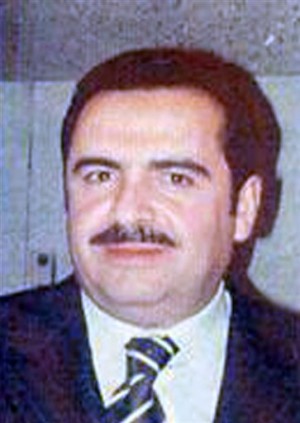MEXICO CITY — Hector Beltran Leyva, the purported head of a feared drug gang allegedly run by his family, became the fourth brother to fall when soldiers grabbed him while dining at a seafood restaurant.
No shots were fired during the operation in San Miguel de Allende, a popular enclave for foreigners and artists in the central state of Guanajuato, federal criminal investigations chief Tomas Zeron said Wednesday night.
With the arrest, Mexico’s government landed another high-profile blow against the country’s cartels. At least nine capos have been killed or captured by security forces since 2009, including elusive Sinaloa cartel boss Joaquin “El Chapo” Guzman, one of the world’s most wanted men.
Mexican authorities have said Beltran Leyva, 49, assumed leadership of the family’s cartel after his brother Arturo was killed by troops in a gunbattle in late 2009. Two other brothers are behind bars for their involvement in the cartel.
The Beltran Leyva gang terrorized parts of central Mexico for years, including Morelos state to the south of Mexico City. It declined somewhat after the brothers’ arrests and killing, but the U.S. Treasury Department said last November that the cartel appeared to be reorganizing and regaining some power.
“Obviously this is not the Beltran Leyvas’ organization in its strongest moment … but it continues to be a criminal organization capable of generating localized violence in some states,” Mexican security expert Jorge Chabat said.
Zeron said Beltran Leyva had adopted a “moderate profile” after becoming head of the cartel to avoid detection. An 11-month investigation determined he had made his home in the central state of Queretaro, where he passed himself off as a businessman selling art and real estate, Zeron said.
He said Beltran Leyva was tracked to San Miguel de Allende and taken into custody along with a man suspected of being involved of the cartel’s finances.
Zeron said DNA tests were being conducted to confirm the suspect’s identity, but it was clear the man was Beltran Leyva. He did not take questions.
“This action proves the effectiveness of the public policy of security and law enforcement to achieve the Mexico at peace that we desire,” President Enrique Pena Nieto’s verified Twitter account said late Wednesday.
Zeron said the investigation was carried out jointly by various security agencies but the arrest was made by the army, an institution that has come under criticism recently for the June killing of 22 suspected gang members in a town south of Mexico City.
According to the U.S. State Department, Beltran Leyva, alias “The H” and “The Engineer,” was born Feb. 16, 1965, in the northern Mexican state of Sinaloa, a cradle of drug trafficking.
He has been indicted in courts in the District of Columbia and New York. U.S. authorities have offered a reward of up to $5 million for information leading to his capture, and Mexico had offered its own bounty of 30 million pesos, about $3.7 million.
U.S. and Mexican authorities say the Beltran Leyva gang is responsible for trafficking drugs to the United States and Europe including cocaine, marijuana, heroin and methamphetamine. It was originally part of Guzman’s Sinaloa cartel, but broke with that group in 2008.
Guzman was caught in the Pacific Coast resort of Mazatlan in February, more than a decade after he escaped from prison. In 2013, authorities in northern Mexico arrested Miguel Angel Trevino Morales, alias “Z-40,” leader of the notorious Zetas cartel. Fellow Zetas leader and founder Heriberto Lazcano Lazcano, alias “El Lazca,” was killed by marines the previous year.
Andrew Selee, a Mexico expert at the Wilson Center think tank in Washington, said the Beltran Leyva cartel established a pattern of extreme brutality that has since become the hallmark of other gangs such as the Zetas.
“It’s a huge deal to get Hector Beltran Leyva, who took over the most bloodthirsty cartel in Mexico. The Beltran Leyva organization was known for corrupting the upper ranks of government and terrorizing communities,” Selee said. “Following on the capture of ‘El Chapo’ Guzman and Miguel Trevino, this is probably the most elusive figure who has still been at large.”
